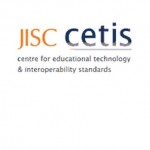
The potential of analytics according to this definition is to help us to evaluate past actions and to estimate the potential of future actions, so to make better decisions and adopt more effective strategies as organisations or individuals. Analytics allows us to increase the degree to which our choices are based on evidence rather than myth, prejudice or anecdote.
Several factors are coming together at the moment to stimulate interest in making more use of analytics. One of these is the increased availability, detail, volume and variety of data from the near-ubiquitous use of ICT (Information and Communication Technology) throughout almost all facets of our lives. This aspect tends to be the focus of the news media but data alone is not enough to realise benefits from analytics. A less popularised factor driving effective exploitation of analytics is the rich array and maturity of techniques for data analysis; a skilled analyst now has many disciplines to draw inspiration from and many tools in their toolbox. Finally, the increased pressure on business and educational organisations to be more efficient and better at what they do adds the third leg to the stool: data, techniques, need.
This paper, one of the CETIS Analytics Series, is aimed at readers who wish to be introduced to the range of techniques that are being pieced together and labelled as Analytics. It does this by outlining some of the most important communities – each with their own origins, techniques, areas of limitation and typical question types – and suggests how they are contributing to the future, with special reference to the context of post-compulsory education.
Item Info
URL: http://publications.cetis.ac.uk/2012/529Publication Date: December, 2012
Author(s): Adam Cooper
Source: Cetis Analytics Series
